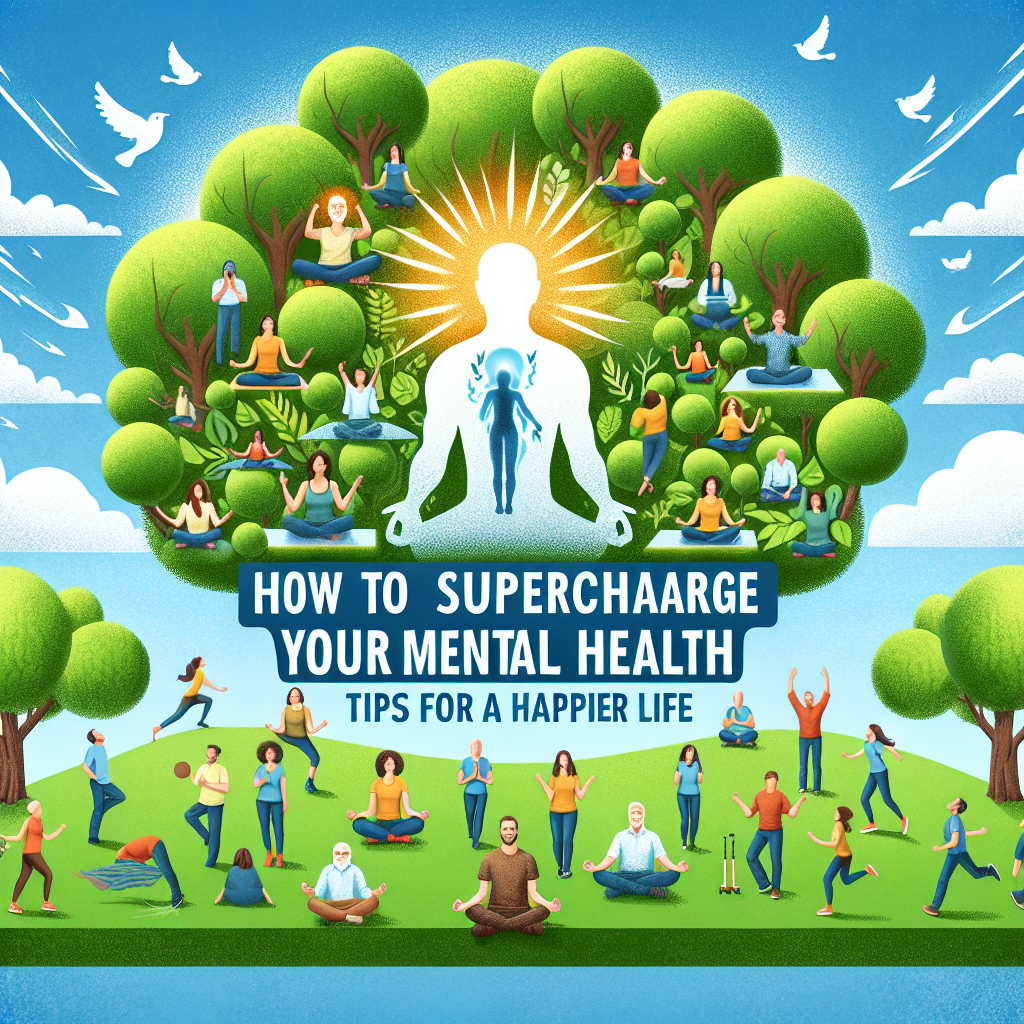Understanding Mental Health
Mental health refers to our emotional, psychological, and social well-being. It plays a crucial role in how we think, feel, and act in our everyday lives. With good mental health, we can manage stress, relate to others, and make choices effectively. Unfortunately, many individuals face challenges that can hinder their mental well-being. Understanding these obstacles and learning how to address them can significantly enhance your quality of life.
1. Practice Mindfulness and Meditation
Mindfulness involves being present and fully engaging with the current moment without judgment. Practicing mindfulness can help reduce anxiety and depression. Meditation is a powerful tool that promotes mindfulness. Consider dedicating just 10-15 minutes each day to sit quietly, focus on your breath, and clear your mind.
Tip: Use apps like Headspace or Calm for guided meditations suitable for novices and experienced meditators alike.
2. Stay Physically Active
Physical activity releases endorphins, which are hormones that improve mood and reduce feelings of stress and anxiety. Whether it’s a brisk walk, yoga session, or any form of exercise, getting your body moving can significantly improve your mental health.
Tip: Aim for at least 30 minutes of moderate exercise most days of the week. Find an activity you enjoy to keep you motivated!
3. Prioritize Sleep
Sleep and mental health are closely linked. Lack of sleep can exacerbate stress and anxiety levels. Aim for 7-9 hours of quality sleep each night. Establishing a bedtime routine can help signal your body it’s time to wind down.
Tip: Limit screen time an hour before bed and create a relaxing environment conducive to sleep.
4. Connect with Others
Social connections are vital for mental health. Engaging in meaningful conversations with friends or family can provide support and a sense of belonging. When you share your feelings, it can help lift the burden off your shoulders.
Tip: Schedule regular catch-ups, whether in person or virtually, to maintain those connections and check on each other’s well-being.
5. Engage in Hobbies
Hobbies can serve as an excellent distraction from daily stressors and can give you a sense of accomplishment. Whether it’s painting, gardening, or playing a musical instrument, activities that interest you can enhance your mood and help you feel more fulfilled.
Tip: Set aside time each week to indulge in your hobbies—view it as a necessary appointment for your mental health!
6. Maintain a Balanced Diet
Nutrition plays a powerful role in mental health. Foods rich in omega-3 fatty acids, antioxidants, and vitamins can positively influence mood and mental clarity. A well-rounded diet should include fruits, vegetables, whole grains, and lean proteins.
Tip: Keep a food journal to track what you eat and how it affects your mood. This can help you identify any dietary patterns that may impact your mental health.
7. Set Realistic Goals
Goals give direction and purpose to your life. However, setting unrealistic goals may lead to disappointment and negative emotions. Break your goals down into smaller, manageable steps to help stay motivated and celebrate small victories along the way.
Tip: Use the SMART criteria (Specific, Measurable, Achievable, Relevant, Time-bound) to create effective goals.
8. Seek Professional Help
If you’re feeling overwhelmed, it’s important to remember that seeking help is a strength, not a weakness. Mental health professionals can offer support, therapy, and medication when necessary. They can help you learn coping strategies tailored to your specific needs.
Tip: Don’t wait until you’re in crisis to seek help. If you feel that your mental health struggles are affecting your day-to-day life, reach out to a mental health professional.
Conclusion
Taking care of your mental health is essential for a fulfilling and happy life. By incorporating these tips into your daily routine, you can significantly improve your mental wellness. Remember, it’s a journey, not a sprint; small, consistent changes can lead to lasting transformations. Don’t hesitate to reach out for help when you need it, and prioritize self-care in your everyday life for lasting happiness and resilience.
FAQs
1. How can I tell if I need to seek help for my mental health?
If you’re experiencing persistent sadness, anxiety, or other symptoms that interfere with your daily activities, it’s important to seek help from a mental health professional.
2. What if I don’t have time for meditation or exercise?
Even short bursts of activity or mindfulness can be beneficial. Try integrating these practices into your daily routine; for example, take the stairs or practice deep breathing for a few minutes.
3. Are mental health issues common?
Yes, mental health issues are common and affect millions of people. It’s important to talk openly about mental health to encourage understanding and support.
4. Can diet really influence mental health?
Absolutely! There is a strong link between nutrition and mental health. Foods that nourish your body can also positively affect your mood and cognitive function.
5. What are some quick ways to boost my mood?
Some quick mood boosters include taking a walk in nature, listening to upbeat music, connecting with a friend, or practicing gratitude by listing things you appreciate in your life.





